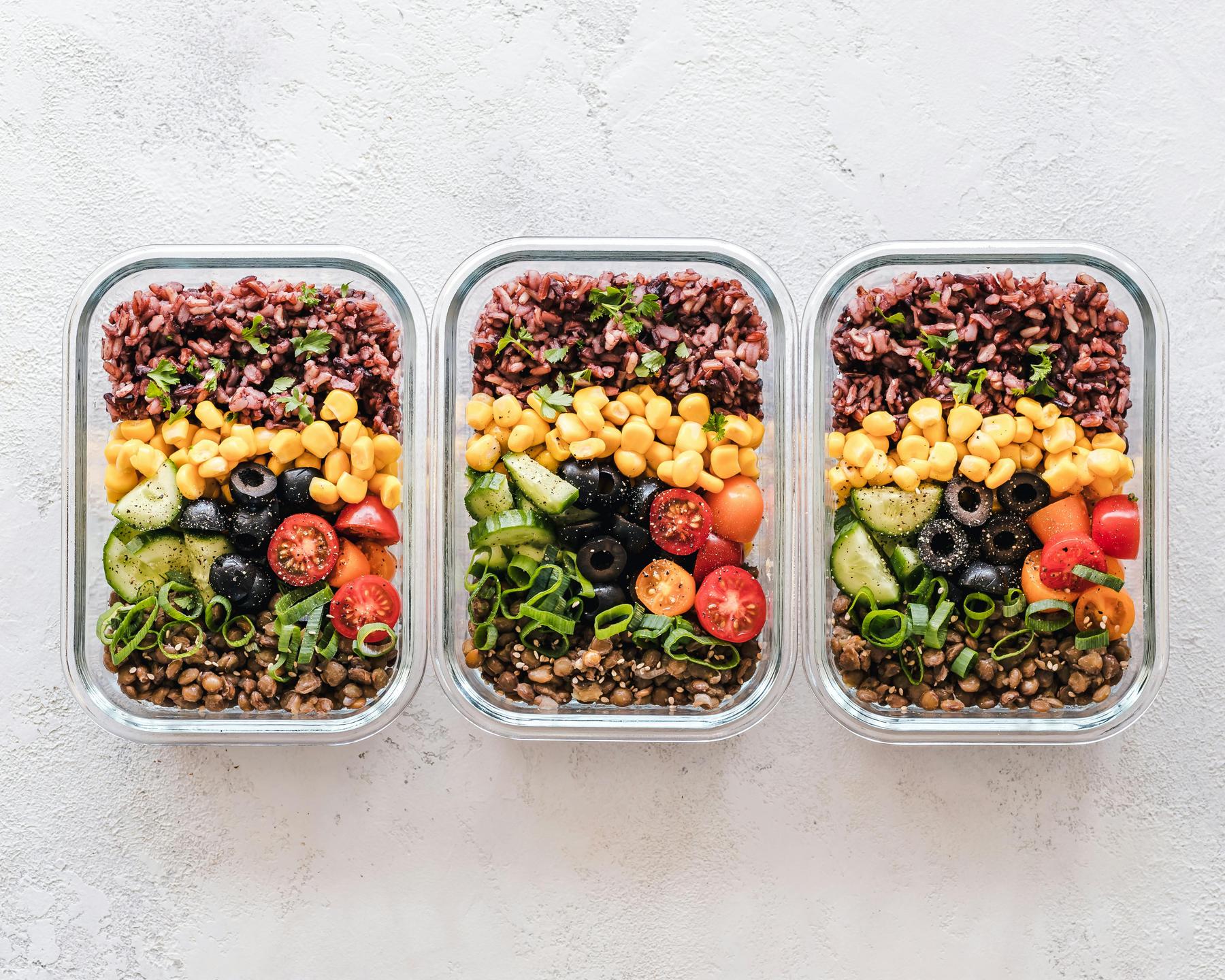In Australia’s health-conscious landscape, the search for effective weight loss strategies continues to evolve. Among the various dietary approaches gaining attention, the raw food diet stands out for its radical departure from conventional eating patterns. As obesity rates in Australia continue to climb, with nearly two-thirds of adults classified as overweight or obese in 2025, many are turning to alternative nutritional approaches. The raw food diet, with its emphasis on uncooked, unprocessed plant foods, promises not just weight reduction but a complete health transformation. But does the scientific evidence support these claims? This comprehensive analysis explores whether adopting a raw food diet could be your pathway to successful weight management.
What Exactly Is the Raw Food Diet?
The raw food diet primarily consists of uncooked and unprocessed plant-based foods. Adherents believe that cooking above 40-48°C destroys vital enzymes and nutrients that support optimal health and weight management. A traditional raw food diet typically includes:
- Fresh fruits and vegetables
- Nuts and seeds
- Sprouted grains and legumes
- Cold-pressed oils
- Fermented foods like kimchi and sauerkraut
- Some versions may include raw animal products like unpasteurised dairy or raw fish
The philosophy behind the raw food diet suggests that our bodies thrive on foods in their natural state, unaltered by high-temperature cooking methods. Proponents argue that humans evolved consuming raw foods for millennia before the discovery of fire, and our digestive systems remain optimised for such consumption.
Most practitioners follow a vegan version of the diet, though some incorporate raw animal products. The strictest adherents consume 100% raw foods, while more moderate approaches might include 75-80% raw items with some cooked foods for nutritional balance and palatability.
How Does the Raw Food Diet Promote Weight Loss?
The raw food diet facilitates weight loss through several well-documented mechanisms that create natural caloric deficits without deliberate portion control.
Caloric Restriction Through Low Energy Density
Raw plant foods contain significantly fewer calories by volume compared to cooked and processed alternatives. For example, raw vegetables like cucumbers and leafy greens provide only 16-30 calories per 100 grams, while cooked grains or legumes deliver 160-200 calories for the same weight. This dramatic difference creates a natural calorie deficit.
Research quantifies this effect: a 3.7-year study tracking 513 raw food adherents found men consumed approximately 1,800 calories daily and women about 1,300 calories—representing a 40-50% reduction from typical intake levels. This naturally lower calorie consumption resulted in average weight losses of 9.9 kg for men and 12 kg for women.
High-Fibre Content and Enhanced Satiety
Uncooked plant foods retain their full fibre content, which plays a crucial role in weight management:
- Soluble fibre (found in raw apples and oats) forms viscous gels that slow digestion and nutrient absorption
- Insoluble fibre (abundant in celery and nuts) adds bulk to stool and promotes gut health
- Both fibre types delay gastric emptying, extending feelings of fullness
A 2023 meta-analysis linked high raw fruit and vegetable consumption to a 23% reduction in ghrelin (hunger hormone) levels compared to diets featuring predominantly cooked foods. This explains why many raw food dieters report sustained satiety despite consuming fewer calories.
Modest Thermogenic Effects
Some evidence suggests that raw foods slightly increase metabolic rate due to the additional energy required to break down fibrous plant cell walls. A 2017 trial observed a 5-8% increase in resting energy expenditure among participants consuming raw versus cooked meals. While this effect is modest (approximately 50-100 calories daily), it contributes to the overall weight loss potential of the diet.
What Are the Nutritional Benefits and Risks of a Raw Food Diet?
The raw food diet offers several evidence-based benefits for weight management and overall health, but also presents significant nutritional challenges that must be addressed.
Potential Metabolic and Cardiovascular Benefits
Raw food diets can positively impact metabolic markers that contribute to weight management:
- Improved insulin sensitivity: A 12-week trial found that a raw vegan diet reduced fasting insulin by 34% and insulin resistance scores by 27% in obese participants
- Enhanced lipid profiles: Studies report 12-18% decreases in LDL cholesterol and 8% increases in HDL cholesterol after six months on raw food diets
- Reduced inflammation: Raw plant foods are rich in antioxidants and phytonutrients that may lower inflammatory markers associated with obesity
These metabolic improvements create a biochemical environment more conducive to weight loss and maintenance.
Concerning Nutritional Deficiencies
Despite these benefits, strict raw food diets frequently lead to nutritional inadequacies that can undermine health and weight management goals:
| Nutrient | Risk on Raw Food Diet | Potential Impact |
|---|---|---|
| Vitamin B12 | 30% of raw vegans develop deficiency within 2 years | Anaemia, neurological symptoms, fatigue |
| Iron | Reduced bioavailability without cooking | Energy depletion, impaired exercise capacity |
| Calcium | Absorption inhibited by oxalates in raw greens | Bone density loss, increased fracture risk |
| Protein | Men average 45-50g daily (below 56g RDI) | Muscle loss, metabolic slowdown |
| Zinc | Limited sources in uncooked plant foods | Immune dysfunction, taste alterations |
Cooking enhances the bioavailability of certain nutrients—for example, lycopene in tomatoes becomes four times more bioavailable when heated. This presents a fundamental contradiction in the raw food philosophy: while preserving heat-sensitive nutrients, the diet may simultaneously reduce access to others.
Food Safety Considerations
Raw food diets also present food safety challenges. While concerns about raw animal products are obvious (Salmonella, E. coli), even plant-based raw diets aren’t risk-free. Raw sprouts and inadequately washed produce have been implicated in outbreaks of Listeria and norovirus—risks particularly significant for vulnerable populations.
Is the Raw Food Diet Sustainable for Long-Term Weight Management?
While the raw food diet consistently produces initial weight loss, its extreme restrictiveness raises questions about long-term viability.
Adherence Challenges
The raw food diet ranks poorly for ease of adherence in systematic evaluations. Several factors contribute to high dropout rates:
- Time-intensive preparation: Soaking nuts, sprouting grains, and dehydrating foods require 2-3 hours of daily kitchen time
- Social limitations: Dining out becomes extremely challenging, potentially leading to social isolation
- Financial burden: Organic produce typically costs 30-50% more than conventional alternatives
- Palatability issues: Monotony and temperature uniformity (predominantly cold foods) reduce dietary satisfaction
- Seasonal variability: Limited options during winter months in Australian regions with less year-round produce variety
These practical constraints often lead to an unsustainable all-or-nothing approach that culminates in weight regain.
Risk of Excessive Weight Loss
Paradoxically, the raw food diet may be too effective at creating calorie deficits for some individuals. Studies show that 30% of women following strict raw food regimens develop amenorrhoea (cessation of menstrual periods) due to excessively low body fat percentages. This suggests the diet may trigger unhealthy weight loss patterns that disrupt hormonal function.
Balanced Approaches: The Modified Raw Food Diet
Many nutrition experts suggest that a modified approach incorporating both raw and cooked foods offers greater long-term sustainability while preserving weight management benefits:
- 75% raw, 25% cooked: Incorporating steamed legumes for protein and cooked whole grains for B vitamins
- Seasonal flexibility: Emphasising raw foods during summer and more cooked options in winter
- Strategic cooking: Applying gentle cooking methods to foods with antinutrients (like beans) or those with nutrients made more bioavailable by heating (like tomatoes)
These balanced approaches maintain many benefits while mitigating the nutritional and practical challenges of a 100% raw regimen.
How Does the Raw Food Diet Compare to Other Weight Loss Approaches?
The raw food diet represents one option among many for weight management. Understanding its relative advantages helps contextualise its potential role in a comprehensive approach.
Comparison with Other Plant-Based Approaches
Compared to conventional vegan or vegetarian diets that include cooked foods, the raw food diet typically produces more rapid initial weight loss. However, studies show similar long-term outcomes for participants who maintain their chosen diet, suggesting the sustainability factor outweighs specific dietary composition.
The Mediterranean diet, which emphasises plant foods but includes moderate cooking, demonstrates superior long-term adherence rates (67% at two years versus 29% for strict raw food diets) while producing sustained weight management benefits.
Structured Support and Medical Oversight
Any significant dietary change benefits from professional guidance. For individuals with obesity-related health conditions or BMI above 27, integrating dietary approaches with medical supervision ensures safety and enhances outcomes.
Comprehensive weight management programs that combine nutritional approaches with behavioural support and, when appropriate, medical interventions, consistently outperform self-directed dietary changes. These integrated approaches address the complex, multifactorial nature of weight management more effectively than isolated dietary interventions.
The Raw Food Diet: Key Considerations for Weight Loss Seekers
The raw food diet demonstrably promotes weight loss through natural calorie restriction and high fibre consumption. Research documents average weight reductions of 9.9-12 kg over periods of 3.5-4 years among adherents. Additionally, the diet offers metabolic benefits including improved insulin sensitivity and cholesterol profiles.
However, these benefits must be weighed against significant nutritional challenges, particularly deficiencies in vitamin B12, protein, iron, zinc, and calcium. The diet’s extreme restrictiveness also presents practical barriers that limit long-term adherence for many individuals.
For those interested in incorporating elements of the raw food approach, a balanced strategy might include:
- Increasing the proportion of raw fruits and vegetables without eliminating cooked foods
- Focusing on nutrient-dense raw options like leafy greens, berries, and sprouted seeds
- Consulting with healthcare professionals before undertaking extreme dietary changes, particularly for individuals with existing health conditions
- Considering the diet as one component of a comprehensive weight management strategy rather than a standalone solution
A modified approach that preserves the beneficial aspects of raw food consumption while addressing its limitations offers the most sustainable path to weight management for most individuals.
How much weight can I expect to lose on a raw food diet?
Research indicates that individuals following a raw food diet typically lose between 9.9 and 12 kg over periods of 3.5-4 years. However, weight loss varies significantly based on starting weight, adherence level, and individual metabolic factors. The most significant weight reduction usually occurs in the first 3-6 months, with rates slowing thereafter as the body adapts to the lower calorie intake.
Do I need to eat 100% raw foods to experience weight loss benefits?
No, research suggests that incorporating 70-80% raw foods while allowing some cooked items (particularly protein sources like legumes and grains) may provide similar weight loss benefits with fewer nutritional risks. This modified approach typically leads to better long-term adherence and sustainable results compared to strict 100% raw regimens.
What are the most common nutritional deficiencies on a raw food diet?
The most frequent nutritional concerns include inadequate vitamin B12 (affecting approximately 30% of strict adherents), insufficient protein intake (particularly problematic for muscle maintenance), and reduced bioavailability of iron, zinc, and calcium. These deficiencies can manifest as fatigue, muscle loss, weakened immune function, and compromised bone health—all of which may undermine weight management efforts.
Is the raw food diet appropriate for people with existing health conditions?
Individuals with pre-existing conditions such as diabetes, heart disease, compromised immunity, or digestive disorders should consult healthcare professionals before adopting a raw food diet. The diet’s restrictive nature may exacerbate certain conditions or interact unfavourably with medications. For individuals with a BMI above 27 with obesity-related health concerns, medically supervised weight management programs typically provide safer, more effective outcomes.
How can I maintain nutritional adequacy on a predominantly raw food diet?
To improve nutritional completeness while following a mostly raw approach, consider strategic supplementation (particularly B12), careful food combining for protein complementarity, germinating seeds and legumes to enhance nutrient availability, incorporating small amounts of cooked foods with superior nutrient profiles, and regular nutritional monitoring with healthcare providers.



